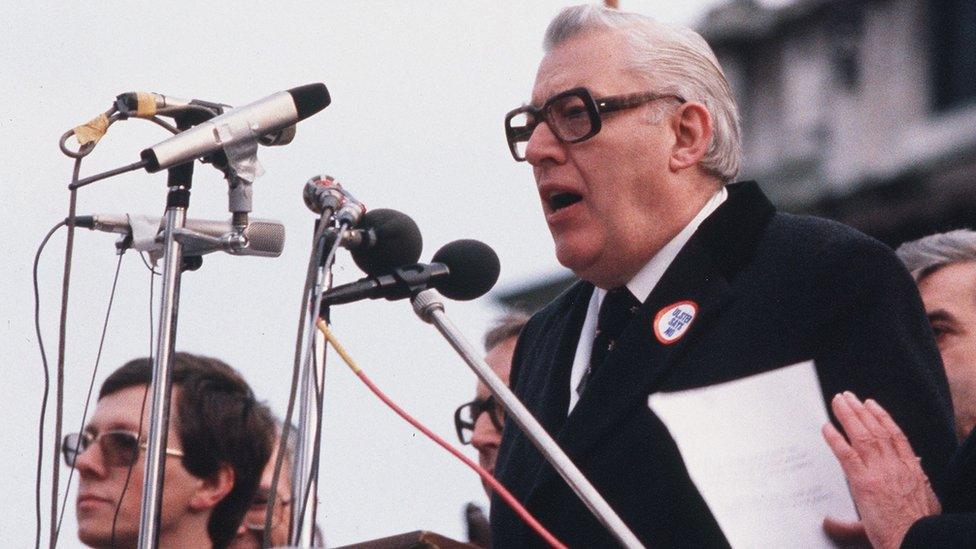DUP: A critical time for Edwin Poots' 'critical friend'
- Published
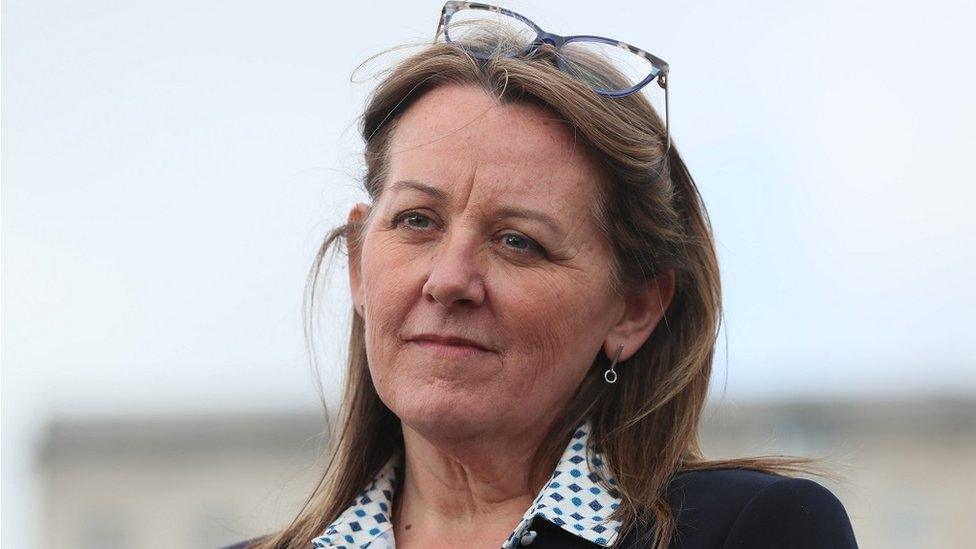
She has described herself as a "critical friend" to the new DUP leader Edwin Poots.
But it still came as a surprise to many when Paula Bradley announced she was standing to become his deputy.
She won the vote by a narrow margin against DUP stalwart Gregory Campbell, and is the first woman to hold the job.
Described as the DUP's most liberal assembly member, she is effectively the political yin to Edwin Poots' yang.
Ms Bradley is hardly a newcomer to frontline politics, however she is regarded as someone who prefers to keep her head down than generate headlines.
The 51-year-old was first elected to Newtownabbey Council in 2005, and become mayor in 2010.
She made the switch to Stormont the following year to become an MLA for North Belfast, but her path to a career in politics was not linear.

Paula Bradley pictured with party colleague Diane Dodds during an election count in 2017
She joined the Royal Ulster Constabulary (RUC) as a part-time reserve aged 22.
She then got a communications job with the DUP in 2002, but worked as a social care assistant for the Northern Trust for a period of years until becoming an MLA.
It is that varied background that has earned respect with her fellow colleagues.
A pragmatic DUP liberal
Many describe her as someone that "would put her arm around your shoulder" or would show younger MLAs the ropes, and warmly refer to her as "considerate and measured".
She has been tipped for a role in the DUP ministerial team, when a reshuffle is eventually announced.
And while she may not share all of Mr Poots' views, they share a reputation as pragmatic politicians.
They are also both cancer survivors - Mr Poots underwent surgery this year while Ms Bradley recovered from cervical cancer in her 20s, external.
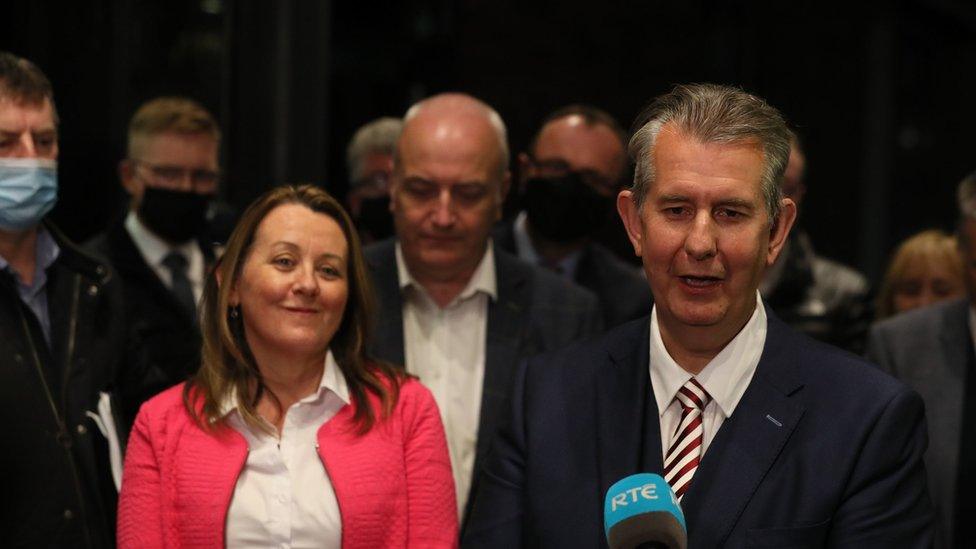
Paula Bradley is seen as much more liberal than Edwin Poots
When it comes to the Poots-Bradley pairing, supporters view it as a sensible plan and privately feel Mr Poots will be able to take a tougher stance on some issues, with his deputy reassuring those moderate DUP voices and voters.
But how will Ms Bradley's liberal views on social matters stack up with those in the fundamentalist wing of the DUP, who wanted the party to return largely to its roots?
In 2017, she told the Belfast Telegraph that she believed same-sex marriage would be legalised in the next decade due to "changing attitudes".
Neither was she afraid to criticise DUP MP Sammy Wilson in 2016 after he made comments questioning the emphasis placed on HIV and Aids over other diseases.
Although a vote on gay conversion therapy appeared to be a final straw in leading to the coup against Arlene Foster, it is worth noting that Ms Bradley had also rebelled that day.
She and Mrs Foster were among five DUP MLAs who abstained on the motion, while the majority of the party voted against - arguing that any legislation to outlaw the practice needed to ensure safeguards for churches.
Questions to come for new deputy
Ms Bradley also went further and abstained on the DUP's own amendment, which attempted to change the motion to reflect protections for churches.
But she has toed the party line on other social issues, voting in favour of her colleague Paul Givan's bill seeking to overturn the law on abortion in cases of non-fatal fetal disabilities, external.
Some DUP figures who backed Sir Jeffrey Donaldson to become leader have privately expressed concerns that the party could become a cold house for moderate members.
Ms Bradley has not yet given an interview to set out what her deputy leadership style will look like, or how she plans to work with Mr Poots.
When she eventually does, it is likely she will be asked: "How liberal can someone be in the DUP now?"
And she will face questions about how she intends to reach out to colleagues who remain hurt about the nature of Mrs Foster's ousting, something Ms Bradley has not yet commented on.
Her friendship with Mr Poots may be critical in the weeks and months ahead.
Equally, Ms Bradley will need to retain the friendship of many others across the party spectrum, in managing her new role.
- Published28 May 2021
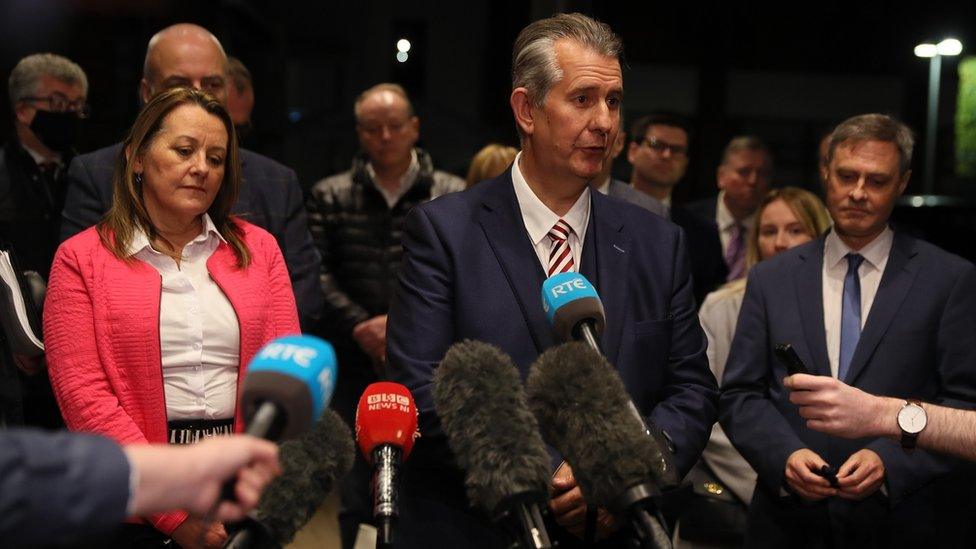
- Published28 May 2021
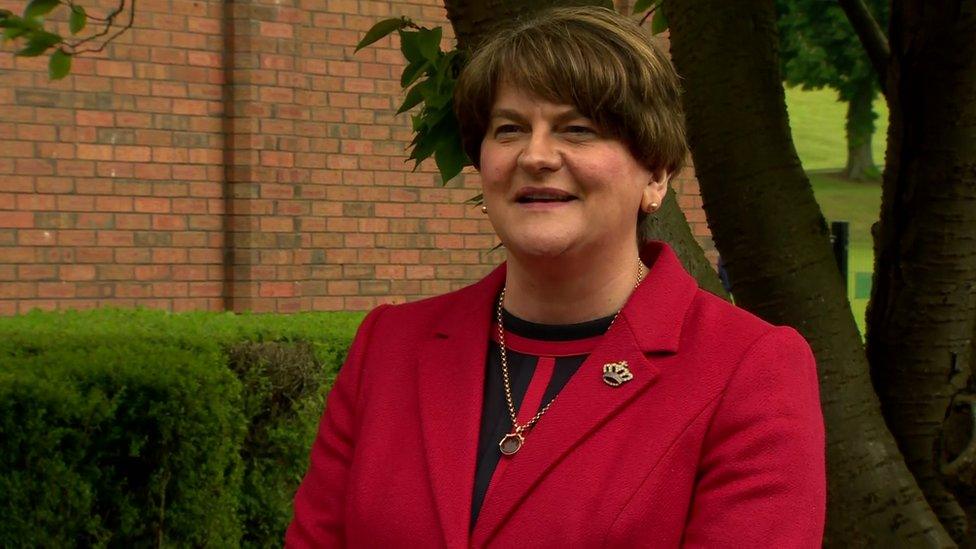
- Published27 May 2021
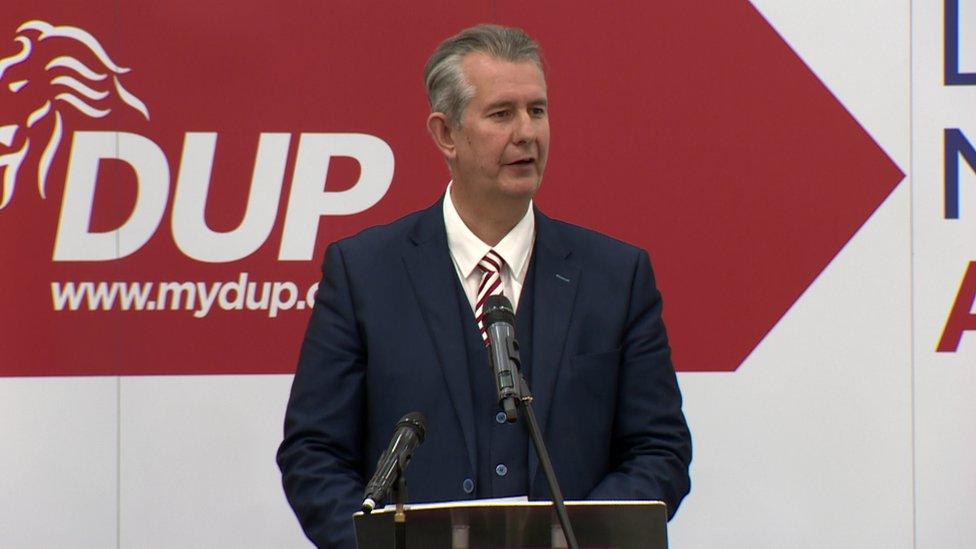
- Published21 June 2021
